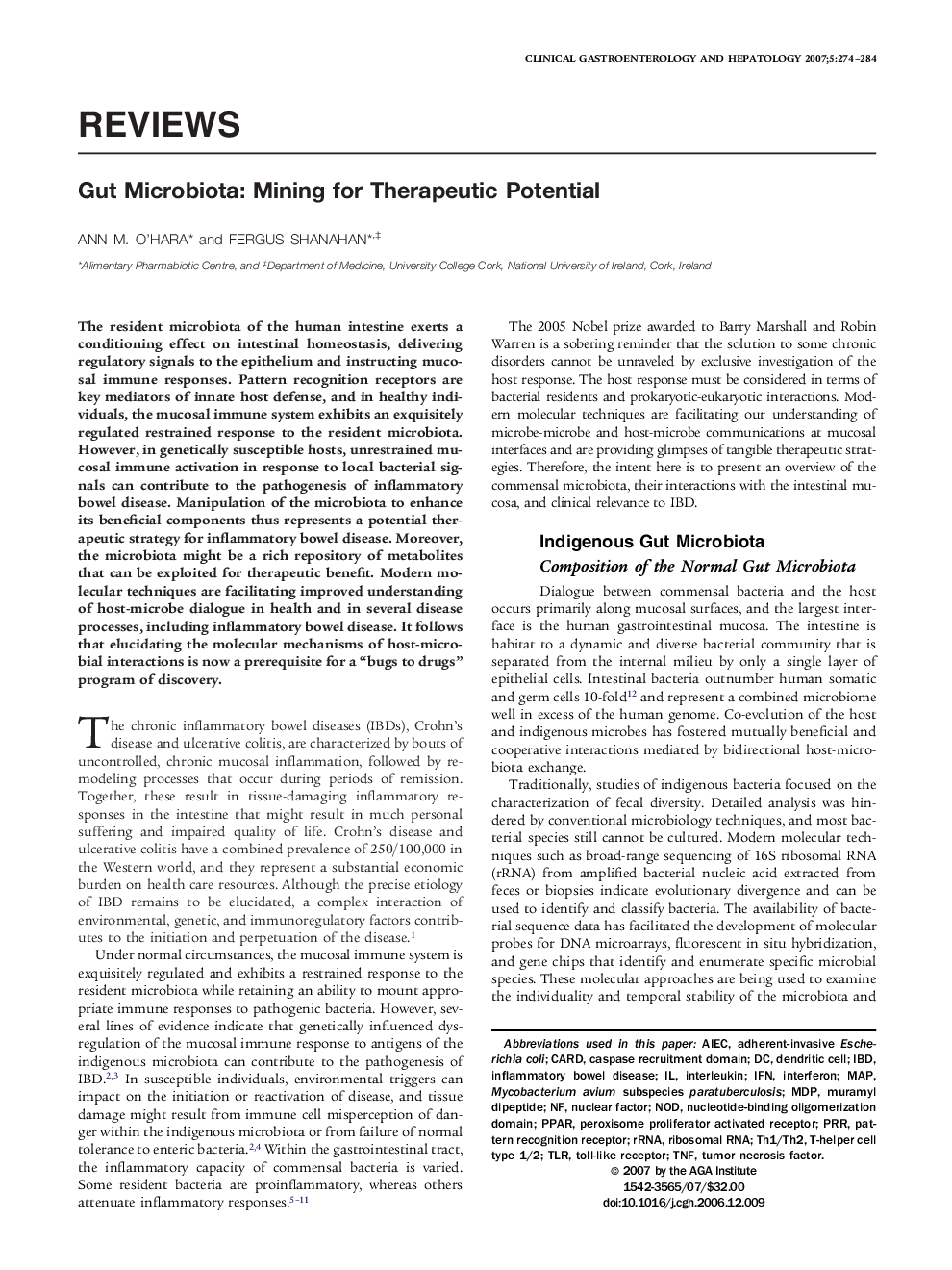| Article ID | Journal | Published Year | Pages | File Type |
|---|---|---|---|---|
| 3285085 | Clinical Gastroenterology and Hepatology | 2007 | 11 Pages |
Abstract
The resident microbiota of the human intestine exerts a conditioning effect on intestinal homeostasis, delivering regulatory signals to the epithelium and instructing mucosal immune responses. Pattern recognition receptors are key mediators of innate host defense, and in healthy individuals, the mucosal immune system exhibits an exquisitely regulated restrained response to the resident microbiota. However, in genetically susceptible hosts, unrestrained mucosal immune activation in response to local bacterial signals can contribute to the pathogenesis of inflammatory bowel disease. Manipulation of the microbiota to enhance its beneficial components thus represents a potential therapeutic strategy for inflammatory bowel disease. Moreover, the microbiota might be a rich repository of metabolites that can be exploited for therapeutic benefit. Modern molecular techniques are facilitating improved understanding of host-microbe dialogue in health and in several disease processes, including inflammatory bowel disease. It follows that elucidating the molecular mechanisms of host-microbial interactions is now a prerequisite for a “bugs to drugs” program of discovery.
Keywords
PRRrRNATNFAIECMDPmuramyl dipeptideTLRPPARNODIBDRibosomal RNATh1/Th2Adherent-invasive Escherichia coliinterferonIFNinterleukinInflammatory bowel diseaseToll-like receptornucleotide-binding oligomerization domaincaspase recruitment domainDendritic cellnuclear factortumor necrosis factormapCARDMycobacterium avium subspecies paratuberculosisPeroxisome proliferator activated receptorPRR, Pattern recognition receptor
Related Topics
Health Sciences
Medicine and Dentistry
Gastroenterology
Authors
Ann M. O'Hara, Fergus Shanahan,
